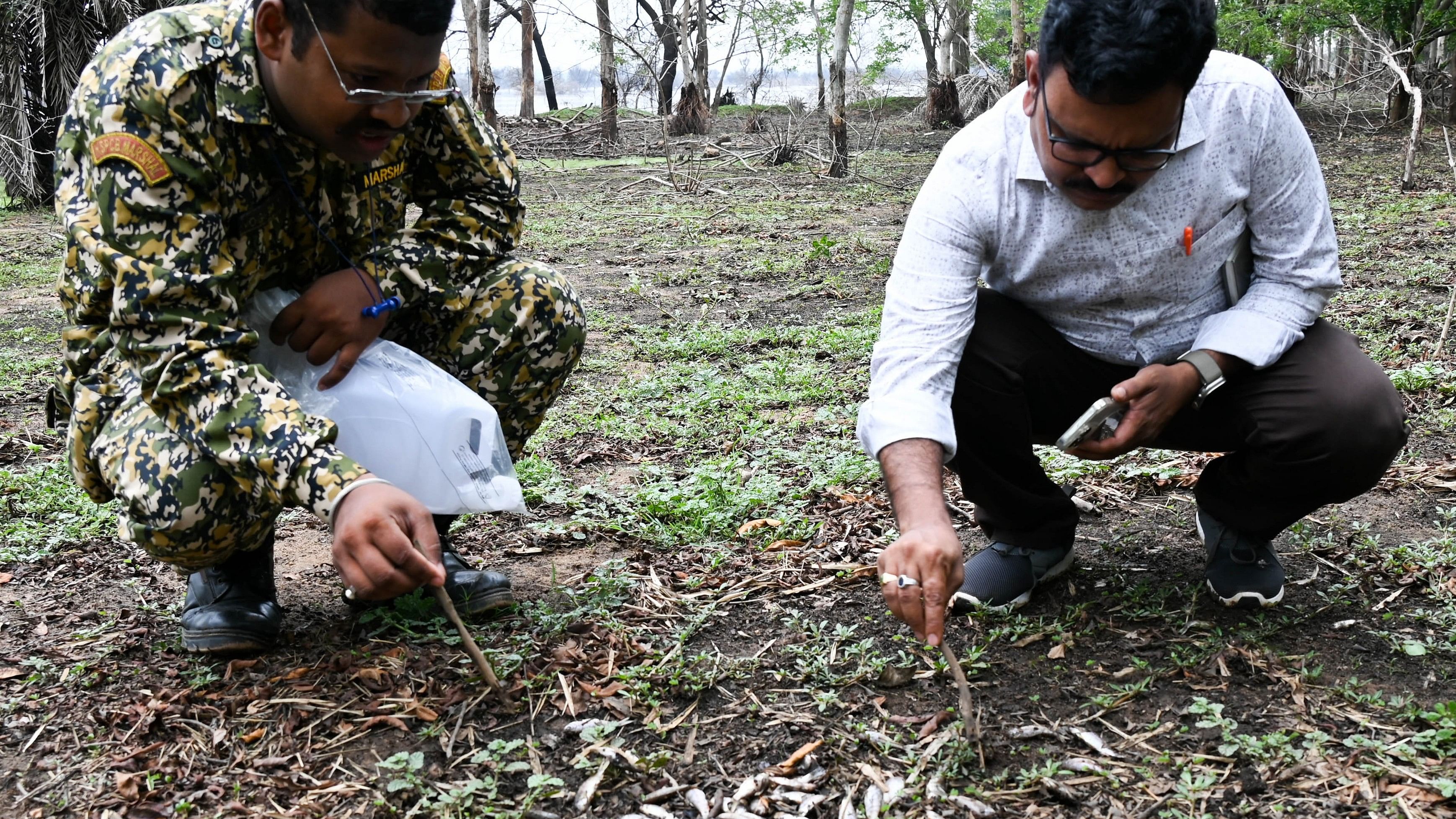
In May, thousands of fish were discovered dead near the bamboo forest on the lake’s eastern side.
DH File Photo
Bengaluru: A month after the fish kill incident at Hesaraghatta lake, the Karnataka State Pollution Control Board (KSPCB) has issued a notice to the Frozen Semen Collection Centre.
Authorities have provided an undertaking to prevent sewage leaks into the lake.
In late May, thousands of small fish were discovered dead near the bamboo forest on the lake’s eastern side.
During inspection on May 21, KSPCB officials found that the dead fish had originated from a pond at the semen collection centre belonging to the Animal Husbandry
Department.
“We believe the fish came from some of the ponds located in the premises of the collection centre. During the inspection of the site, we found that the sewage generated from washing the cattle in the research centre has overflowed into the lake. We later issued a notice to the authorities,” a source in the KSPCB said.
Suresh, KSPCB Environment Officer at the Dasarahalli Regional Office, confirmed the development. “A response has been received from the authorities,” he said.
Another official said treatment of the waste water was necessary as stormwater from the ponds, located upstream, drains into the Hesaraghatta lake. He said the sewage from washing of the cattle sheds gets collected in a large pond, which overflows into the neighbouring low-lying areas, including the other ponds and the drain that carries storm water to the lake.
“While it was not clear whether fish were being bred in the adjacent ponds with clear water, it was evident that the sewage from the centre would overflow and drain into the lake. We have received a response, which will be forwarded to the headquarters for further action,” he said.
The official noted that preventing the contamination of the lake, which once supplied drinking water to Bengaluru, was important to protect the birds and animals that thrive in the grassland.